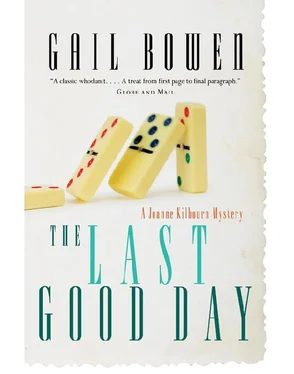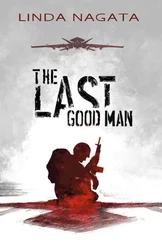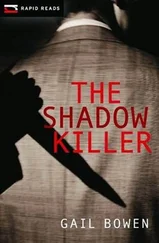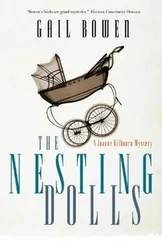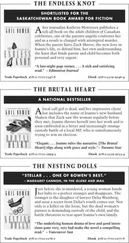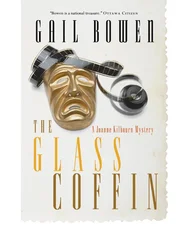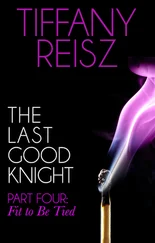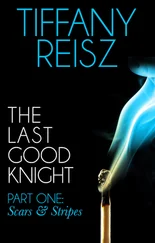Gail Bowen - The Last Good Day
Здесь есть возможность читать онлайн «Gail Bowen - The Last Good Day» весь текст электронной книги совершенно бесплатно (целиком полную версию без сокращений). В некоторых случаях можно слушать аудио, скачать через торрент в формате fb2 и присутствует краткое содержание. Жанр: Классический детектив, на английском языке. Описание произведения, (предисловие) а так же отзывы посетителей доступны на портале библиотеки ЛибКат.
- Название:The Last Good Day
- Автор:
- Жанр:
- Год:неизвестен
- ISBN:нет данных
- Рейтинг книги:4 / 5. Голосов: 1
-
Избранное:Добавить в избранное
- Отзывы:
-
Ваша оценка:
- 80
- 1
- 2
- 3
- 4
- 5
The Last Good Day: краткое содержание, описание и аннотация
Предлагаем к чтению аннотацию, описание, краткое содержание или предисловие (зависит от того, что написал сам автор книги «The Last Good Day»). Если вы не нашли необходимую информацию о книге — напишите в комментариях, мы постараемся отыскать её.
The Last Good Day — читать онлайн бесплатно полную книгу (весь текст) целиком
Ниже представлен текст книги, разбитый по страницам. Система сохранения места последней прочитанной страницы, позволяет с удобством читать онлайн бесплатно книгу «The Last Good Day», без необходимости каждый раз заново искать на чём Вы остановились. Поставьте закладку, и сможете в любой момент перейти на страницу, на которой закончили чтение.
Интервал:
Закладка:
“You suspected someone other than Clare was using her e-mail address,” I said.
Anne’s eyes met mine. “I knew it,” she said simply. “But I decided before I went to the police to test my theory one more time. Coming up with a question that required intimate knowledge was difficult. Clare and I hadn’t exchanged confidences. Then I remembered that she’d teased me about the laces on my running shoes. They’re Strawberry Shortcake laces.” Anne coloured. “There were these dolls in the early eighties…”
“I remember them,” I said. “My daughter Mieka was a fan.”
Anne’s smile was wan. “Anyway, I e-mailed Clare a note asking her to describe my shoelaces. The e-mail program I use lets me know when my messages have been read, so I know someone opened the e-mail, but there was no response. That’s when I went to the police.”
“And the police didn’t investigate?”
“They said they did.” Anne bit off the words.
“But you didn’t believe them.”
“I believe they went through the motions. The kindest construction is that the detective they sent to investigate was simply out-manoeuvred by the partners at Falconer Shreve. According to the detective I spoke to, events unfolded exactly as Clare’s first note to me said they had. She received the Vancouver offer out of the blue – it was everything she’d ever wanted, so she went for it. Falconer Shreve accepted her resignation reluctantly, but they didn’t want to stand in the way of a woman’s chance at her ‘dream job.’ ” Anne peered at me closely. “The detective used that phrase, too, Joanne. They were all reading from the same script.”
“And you let the matter drop?”
“I was advised to…”
“By whom?”
“By the detective. He said I should drop the case, that people are complex and that sometimes their behaviour is inexplicable.”
“Sounds condescending,” I said.
“The words do,” Anne said. “But if you could have seen his face…” She shook her head, as if to clear the memory. “He seemed to be wrestling with something. At the time I thought his superiors had told him to put a lid on the case, so I tried to psych him out. I told him if the police weren’t going to find Clare Mackey, I would.”
“Did he try to stop you?”
“No. His response was quite bizarre. For the longest time he just stared at me. Finally, he said, ‘Sometimes when the pressures get to be too much, people walk away.’ You know, Joanne, I don’t think he was talking about Clare at all. I think he was talking about himself.”
“It sounds as if he should be reported. Do you remember his name?”
“It was a hard one to forget. He was aboriginal. His name was Alex Kequahtooway.”
I tried to keep my voice steady. “I don’t suppose you remember exactly when you talked to him.”
“Oh, but I do,” Anne said. “It was my birthday. November 30.”
I looked down at my hands. They were trembling as if they belonged to a very old lady or a very sick one. November 30 was the date on which Alex had ended our three-year relationship.
I’d planned to drive straight back to the lake, but my conversation with Anne Millar had been a stunner, so I drove home instead. The story of Clare Mackey had been deeply unsettling; it had also opened a Pandora’s box that I’d hoped I’d finally managed to nail shut. I needed time to absorb Anne’s story, but I also needed time to regroup.
My breakup with Alex had been, as these things often are, both a shock and a relief. We had never lived together, but we had created a life together that I thought had fulfilled us both. Unmarried, Alex had a nephew, Eli, who was the same age as Angus, and after a few false starts our families had blended seamlessly. Our pleasures were domestic: crosscountry skiing, watching videos, going to Roughrider games or the symphony, being together. At our best, we stretched one another’s spirits, and even at our worst, we had been passionate.
Our relationship was not ideal. The fact that I was ten years older than he had never been an issue; the fact that I was white and Alex was aboriginal had been a wound that never healed. Alex was one of the gentlest human beings I’d ever known; he was also one of the angriest, and the rage never left him. For long periods we would be happy, but just when I believed the anger had been quenched, it would flare up in a blaze that consumed us both. Alex would wall himself off and become, in one of the buzzwords of our day, emotionally unavailable.
In the months before our breakup, the walls never seemed to come down. Nothing I did or said could dent his armour of anger. When he told me we were through, I was relieved but I was also bewildered. I genuinely didn’t understand what had gone wrong. Anne’s portrait of Alex’s state of mind on the day we broke up offered a flash of insight, but it also raised questions far too vexing for a hot summer afternoon. What was the source of the pressures Alex had been experiencing? He was a man who believed in the value of police work, yet he had blown off Anne Millar, dismissed her very real concerns as if they were less than nothing. He had also dismissed me. Tempting as it was to blame Lily Falconer for everything that had gone wrong, I couldn’t convince myself that Alex’s attraction for her could change the man he was.
It was a relief to peel off my funeral clothes and put on a sundress and sandals. In a perfect world, changing clothes would have transformed my mood, but even the summery lightness of a cotton dress and bare legs didn’t raise my spirits. I wasn’t surprised. This was not shaping up to be a summer of easy solutions.
Angus had asked me to bring back some of his CDS. When I went into the family room to get them, I noticed my laptop, still in its carrying case, propped against the bookshelf. I’d promised myself I wouldn’t take a computer to the lake, that this summer I would recreate the innocence of the pre-information-technology world at the pristine beach and sparkling water known as Lawyers’ Bay. But now isolation was no longer an option – I needed to be connected to the world that lay beyond our privileged half-moon of lakefront cottages. I picked up the laptop, slung the strap over my shoulder, and headed for Paradise Lost.
My radio was tuned to a community-station show that featured up-and-coming young artists. As I turned off the highway onto the road that wound through the Qu’Appelle Valley to the lake, the twenty-something deejay announced that the next selection was by a group called the nancy ray-guns. The name of the song was “Windigo,” and the deejay said it was the tale of a giant stone shape-changer who fed on human flesh. Perfect drive-home music.
When I stopped at the Point Store to pick up Taylor, everything was reassuringly ordinary. The old men of Coffee Row were sitting under the cottonwood trees spinning tales, and the store was bustling. It was six o’clock on a hot Saturday evening in July, and wieners, potato chips, hot-dog buns, and mosquito coils were at a premium. Leah was in the front of the store at the till, and Taylor was beside her, bagging groceries.
My younger daughter trumpeted her joy the moment she spotted me. “This has been the best day,” she said. “I got to do everything, and Mr. Gardiner showed Angus how to work the meat grinder and he let me hand him the raw meat.”
Leah raked a hand through her blond bob. “The fun never ends,” she said.
“Had enough?” I asked.
“Actually it is kind of neat,” Leah said. “And as my Aunt Slava would say, ‘That Taylor – she must have been sent by God.’ ”
“Nice to know God has his eye on the Point Store,” I said. “So, T, are you ready to come back to the cottage and have dinner?”
Читать дальшеИнтервал:
Закладка:
Похожие книги на «The Last Good Day»
Представляем Вашему вниманию похожие книги на «The Last Good Day» списком для выбора. Мы отобрали схожую по названию и смыслу литературу в надежде предоставить читателям больше вариантов отыскать новые, интересные, ещё непрочитанные произведения.
Обсуждение, отзывы о книге «The Last Good Day» и просто собственные мнения читателей. Оставьте ваши комментарии, напишите, что Вы думаете о произведении, его смысле или главных героях. Укажите что конкретно понравилось, а что нет, и почему Вы так считаете.
